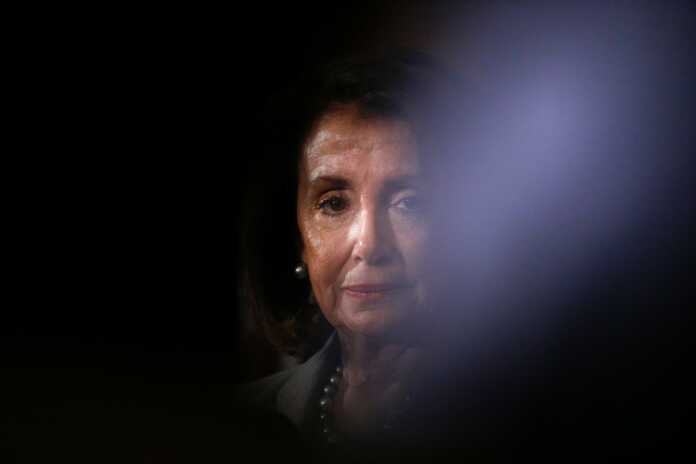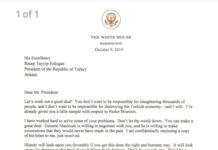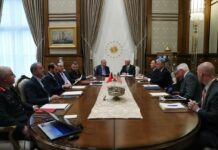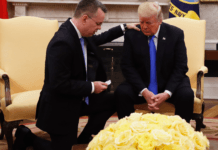
Words and behaviors of politicians are dominating the political agenda in our country in recent days, and they are widely discussed in the public sphere. Some video footages often accompany such discussions. Because nobody has objected those footages declaring them ‘fake‘ yet, it is not possible to argue that these hotly debated footages are possibly ‘skillfully manipulated visual products‘.
Yet, I suggest we should be on alert about such manipulative attempts, considering a series of events at home and abroad with a considerable impact on political processes in recent times.
Until this topic aroused my interest, I had not heard of the term ‘deepfake‘ which is very likely to have come into usage recently. The term refers to attempts for influencing political life through manipulated video footages, and production of such videos is very easy to produce and not something challenging even for ordinary individuals. Thanks to great advances in technology, almost anyone with a tablet or a computer can manage to do this by a few software programs available on Internet to download.
We read in media that a coup attempt took place in Gabon in Africa as a result of a video footage that is thought to be a ‘deepfake‘. Even though the attempt failed, it must have had some considerable adverse impact on the country. According to the news about this event, a video footage, believed to be a ‘deepfake‘, is released at a time when Ali Bongo, president of the country since 2009 and the last member of the ruling family that controls the country since 1967, suffers from some serious health problems. The video aims to convince the public that the president is in good shape, but widespread claims of’deepfake‘ wreak havoc on the country, and almost brings the country to the threshold of a bloody turmoil.
Do you find it difficult to follow what I mean to say?
Triggering off disturbances in a country through videos
A similar event occurred in the USA recently and it concerns Nancy Pelosi, a senior politician and the speaker of the House. A footage showing her making a statement to the press suddenly burst like a bombshell on the social media in the country.
In the video, Pelosi appears to be heavily drunk to such an extent that she slurs her words, it is difficult to understand what she says.
Lots of people including some political commentators beat Nancy Pelosi up in public assuming that the video was authentic. The speaker of the House was depicted as a loose cannon to the extent that she had dared to appear in a press briefing heavily drunk and spoke gibberish on important matters.
The video was watched by millions of people in social media; but, as it eventually turned out, the video had actually been a ‘deepfake‘ and produced by a single person.
Volumes of pieces were written, and tons of commentaries were made against Pelosi until when the truth was revealed by internet news portal, the Daily Beast, on June 1, 2019.
A Trump fanatic named Shawn Brooks is a man who produces ‘deepfakes‘ in order to make person he admires look more impressive and make politicians that he hates look bad in the eyes of the people. The video of Pelosiis the last product of this man.
According to the news item on this topic which appeared in the New York Times and helped me become fully aware of the significance of this matter of ‘deepfake‘, Brooks denies the allegations of producing the fake video, but Facebook confirms that he is the first person who put the video in circulation.
As this event illustrates, even a single person proves to be enough to manage to have a great impact on politics in any country.
It seems that states occasionally resort to such tricky ways, too. The offensive propaganda campaign against Muslims with the reinforcement of fake videos ultimately led to the slaughter of Muslims in Myanmar, and the campaign was initiated by some agencies within the state. [We gather this information from the same piece written on the event in Gabon that I mentioned above.]
The piece in the NYT also includes the ascertainment which may be summarized in a single sentence: “People have a stronger tendency for believing in adverse news about politicians.“
I believe that this motto tells the truth. People do not pay much attention to positive remarks about others, but they are often too quick to react when some awkward claims against politicians are made. Besides, because people almost only believe what they see through their own eyes are true, video footages become effective propaganda means.
As a matter of fact, this topic is not really new for us as the citizens of this country. We recall that a party leader had been replaced by another one as a consequence of some video recordings. In another political party, a group of MPs were purged by means of the same methods. The process, known as “the process of December 17-25” and of which impact is still alive on politics in our country, had been initiated by some voice recordings after all.
Fake videos are easy to identify, but not ‘deepfakes‘
The above-mentioned videos causing turmoil in Gabon and troubles in the USA were produced by using simple techniques, thus, were easy to identify if they were authentic. There are some institutions such as Internet Without Borders and companies like Deeptrace Labswhich specifically work on ‘fakevideos‘ and are pretty well-known by their serious works in the field.
However, these institutions and experts in the field raise concern about technological feasibility of more complicated ‘fake videos‘ which are hard to identify and have the potential to cause much greater impact thanks to advances in computer technologies.
Videos called ‘deepfakes‘ are the ones that are produced professionally and difficult to identify any way.
The ones produced and put in circulation by amateurs are not so difficult to detect; but, professionally-produced ‘deepfakes‘ are increasingly becoming a serious concern as such videos have the potential for causing serious problems for countries leading to unpredictable troubles.
There are less than two weeks left to the mayoral election in Istanbul which is regarded ‘crucial‘ by almost everyone. I think it is safe to say that we have just entered the most significant phase of the pre-election period. I have just wished to remind the importance of such a potential danger by giving ear to the proverb that reads “Nothing is certain but the unforeseen.”
Utmost care is needed.
ΩΩΩΩ
[Translated by Bernar Kutluğ from the the article appeared in this site’s Turkish section on June 12, 2019]
.










